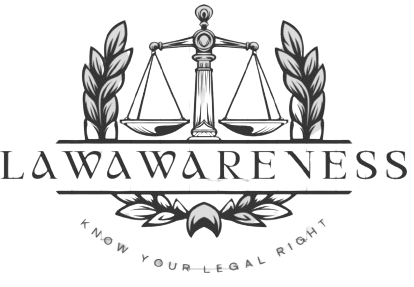Peaceful Assembly
Peaceful Assembly and Association is a right recognized and guaranteed in Section 40 of the Constitution of the Federal Republic of Nigeria, 1999 (as amended) (The Constitution) which provides thus:
Every person shall be entitled to assemble freely and associate with other person and in particular he may form or belong to any political party, trade union or any other association for the protection of his interest. Provided that the provisions of this section shall not derogate from the powers conferred by this Constitution on the Independent National Electoral Commission with respect to political parties to which that Commission does not accord recognition.
Unlawful Assembly and Rioting
Peaceful assembly or protest is good, but an unlawful assembly is by all ramifications wrong. In defining an Unlawful Assembly, Section 100 of The Penal Code Act (The Act), provides:
An assembly of five or more persons is designated an unlawful assembly if the common object of the persons composing that assembly is-
(a) to overawe by criminal force or show of criminal force the Government of the Federation or any Government in Nigeria or a public officer in the exercise of his lawful powers; or (b) to resist the execution of a law or of a legal process; or (c) to commit a mischief or criminal trespass or other offence of any kind whatsoever, or (d) by means of criminal force or show of criminal force to enforce a right or supposed right; or (e) by means of criminal force or show of criminal force to compel a person to do that he is not legally bound to do or to omit to do what he is legally entitled to do.
The Penal Code Act is only applicable to criminal acts or omissions committed in the FCT, except as otherwise provided under The Act. However, most of the federating states of Nigeria have similar provisions of The Act in their Laws.
Going forward, by Section 105 of The Act, Rioting is defined thus:
Whenever force or violence is used by an unlawful assembly or by a member thereof in prosecution of the common object of the assembly, every member of that assembly is guilty of the offence of rioting.
Flowing from the foregoing, the difference between Rioting and Unlawful Assembly is that while Unlawful Assembly is simply about the gathering of five (5) or more persons with the intent to do any of the objects listed in Sections 100 (a) – (e) of The Act, Rioting is the actual use of violence or force by a member or the members of the unlawful assembly to execute the said objects.
Limitations to Peaceful Assembly
The right to peaceful protest is a qualified right, it is not an absolute right. This is supported by Section 45 of the Constitution of the Federal Republic of Nigeria, 1999 (as amended) which provides:
Nothing in Sections 37, 38, 39, 40 and 41 of this Constitution shall invalidate any law that is reasonably justifiable in a democratic society: (a) in the interest of defence, public safety, public order, public morality or public health; or
(b) For the purpose of protecting the rights and freedom of other persons.
On instances where fundamental rights can be waived, it was held in the case of Dokubo-Asari v. FRN (2007) LPELR-958(SC), viz:
The pronouncement by the court below is that where National Security is threatened or there is the real likelihood of it being threatened, human rights or the individual right of those responsible take second place. Human rights or individual rights must be suspended until the National Security can be protected or well taken care of. This is not anything new. The corporate existence of Nigeria as a united, harmonious, indivisible and indissoluble sovereign nation, is certainly greater than any citizen’s liberty or right. Once the security of this nation is in jeopardy and it survives in pieces rather than in peace, the individual’s liberty or right may not even exist.” Per IBRAHIM TANKO MUHAMMAD, JSC (Pp 38 – 38 Paras B – E)
To marry this writ-up with a live scenario where people protest and destroy public and private properties. The gathering which gave rise to such destruction of properties is an unlawful assembly because the persons who are more than five (5) in number have set out to commit an offence; whatever object they have in mind would be seen as the destruction of properties which they have executed in the course of the protest and nothing more. Thus, destroying public and private properties can threaten or is likely to threaten public peace and such acts which disturb public peace or which can cause breach of public peace or which are likely to cause a breach of the peace or disturb the public are offences under Sections 113 and 114 of The Act. Furthermore, the actual use of force or violence in the destruction of properties by a member or the members of the unlawful assembly is Rioting, and this constitutes a breach of peace.
In line with the dicta of my Lords above, Section 14(2) (b) of The Constitution provides that the security and welfare of the people shall be the primary purpose of government. A breach of peace of the people is a breach of security, and the government is empowered to contend such breaches with the required force in the circumstances so as to bring normalcy in the society and for the safety and protection of the rights of its citizens. This would involve, where and when necessary, the suspension of the fundamental rights of persons such as Right to peaceful protest.
Conclusion
People are encouraged to engage in peaceful protests in order to communicate their lawful interests to the government. However, in the doing of such lawful demonstrations, people should not engage in unlawful assembly and rioting as they would be counterproductive to the actualization of such lawful and meaningful interests of the citizens.



